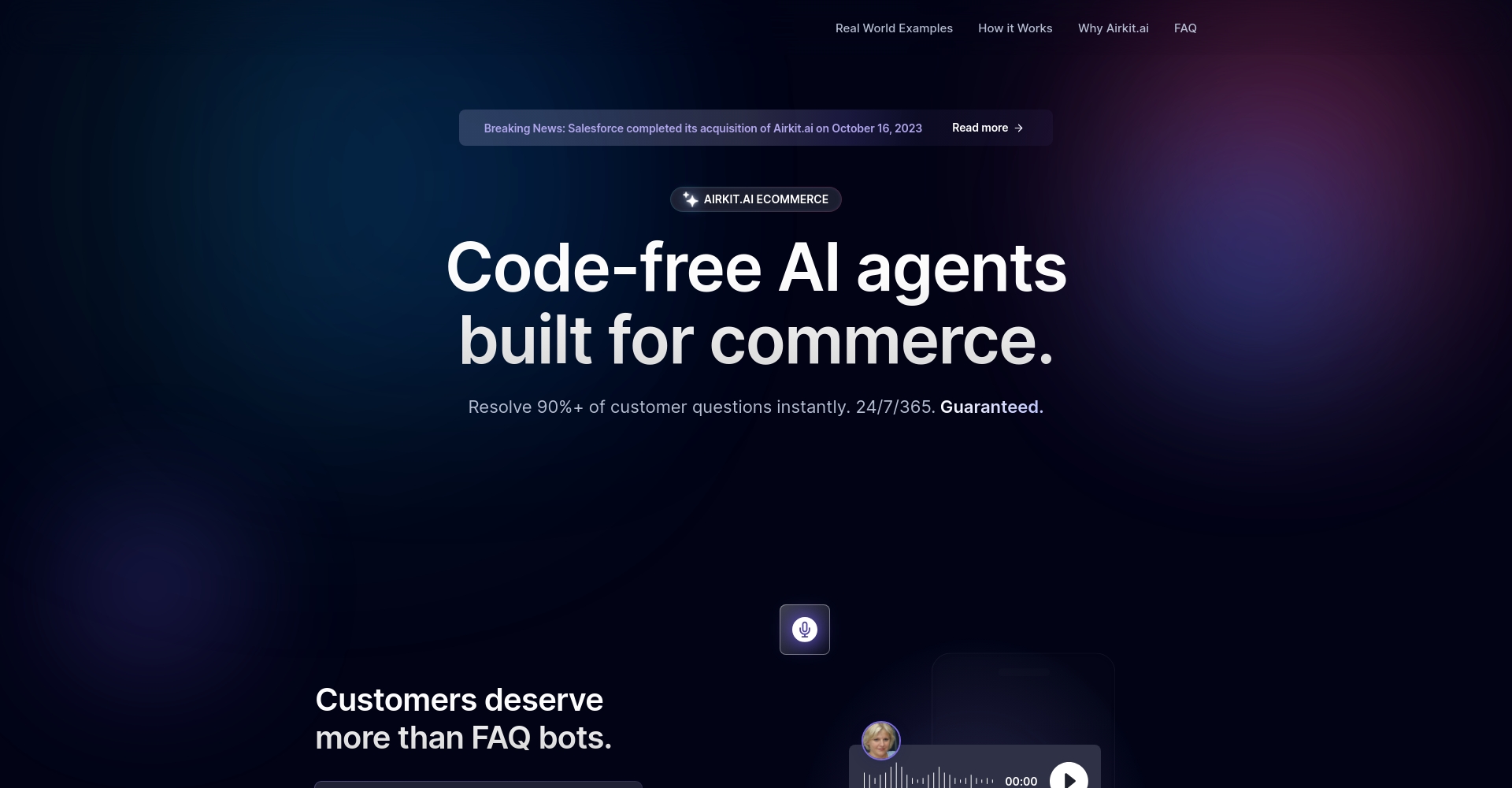Salesforce's acquisition of Airkit marks a significant step in the tech giant's strategy to enhance its AI-driven customer service capabilities. By integrating Airkit's low-code platform, Salesforce aims to bolster its Service Cloud offerings, providing businesses with advanced tools for customer engagement. This move underscores Salesforce's commitment to leading the AI and customer service sectors.

Founded in 2017, Airkit specializes in code-free AI agents tailored for the eCommerce sector. Its core services include customer service automation for tasks such as order status, returns, and product support. Airkit stands out with its focus on delightful outcomes, easy integrations, proactive service, hyper-personalization, and trusted AI. These features enable businesses to resolve over 90% of customer inquiries instantly, enhancing both customer satisfaction and operational efficiency.
Salesforce is a leading provider of customer relationship management (CRM) solutions, integrating data, AI, and automation to help businesses manage customer relationships, drive sales, and improve service. Key products include Agentforce for workflow automation, the Starter Suite for small businesses, and tools for sales, service, marketing, and commerce. Recognized as the world's #1 CRM for 11 consecutive years, Salesforce is influential across various industries, offering tailored solutions and driving significant business outcomes.
Salesforce completed the acquisition of Airkit on October 16, 2023. This acquisition aligns with the growing emphasis on generative AI technologies, driven by the success of platforms like ChatGPT. The timing also fits within Salesforce's broader strategy to enhance its AI-driven customer engagement capabilities, following its recent initiatives such as the launch of Data Cloud and the Einstein 1 Platform. The deal is expected to close by January 2024, subject to customary closing conditions.
Salesforce's acquisition of Airkit is driven by several strategic motivations:
The acquisition of Airkit by Salesforce is set to bring notable changes to the company's operations and management. Airkit will be integrated into Salesforce's Service Cloud, with Co-Founder and CTO Adam Evans continuing to lead the team within Salesforce. This integration is part of Salesforce's broader strategy to enhance its AI-driven customer service capabilities. The operational shift aims to leverage Airkit's low-code platform to build flexible, omni-channel customer engagement applications, aligning with Salesforce's vision of a comprehensive AI ecosystem.
In terms of product offerings, Airkit's GPT-4-based platform for creating specialized customer service chatbots will be incorporated into Salesforce's suite of AI solutions. This move is expected to significantly enhance Salesforce's capabilities in providing AI-powered customer service, benefiting various functions like sales, marketing, and commerce. Employee reactions have been generally positive, with many expressing excitement about the new opportunities. Customers, too, are optimistic, anticipating improved service experiences and more efficient query resolutions.
For founders considering business transitions, tools like Sunset can assist in managing such processes compliantly, ensuring a smooth and efficient transition.